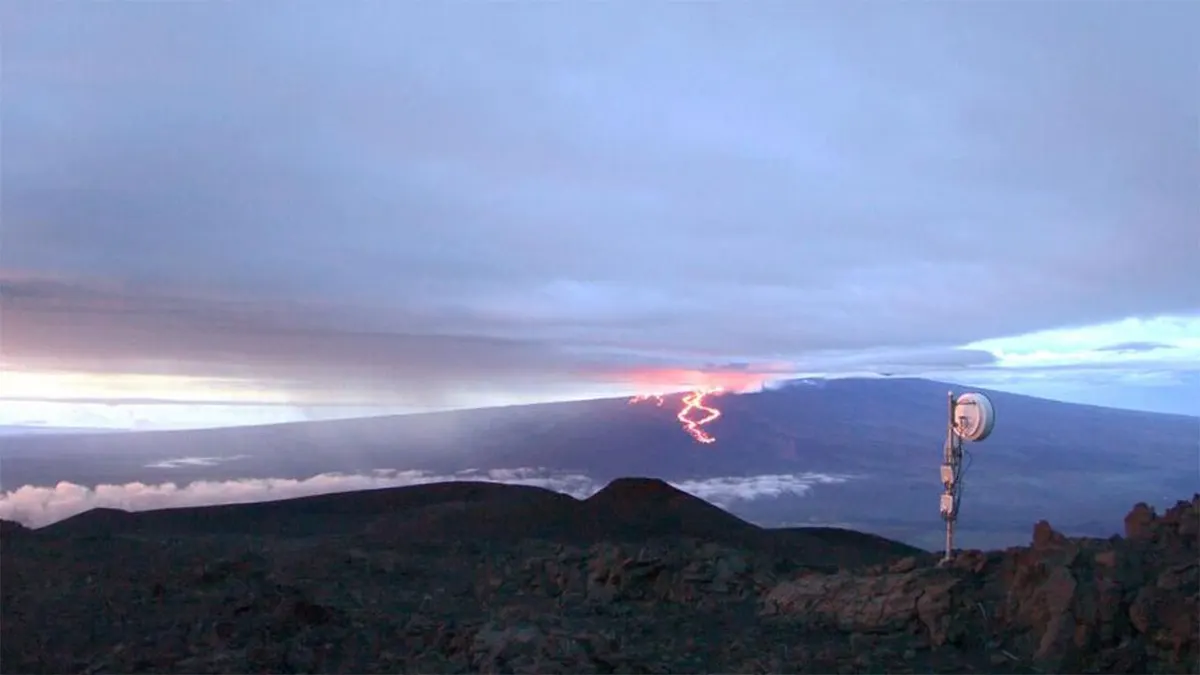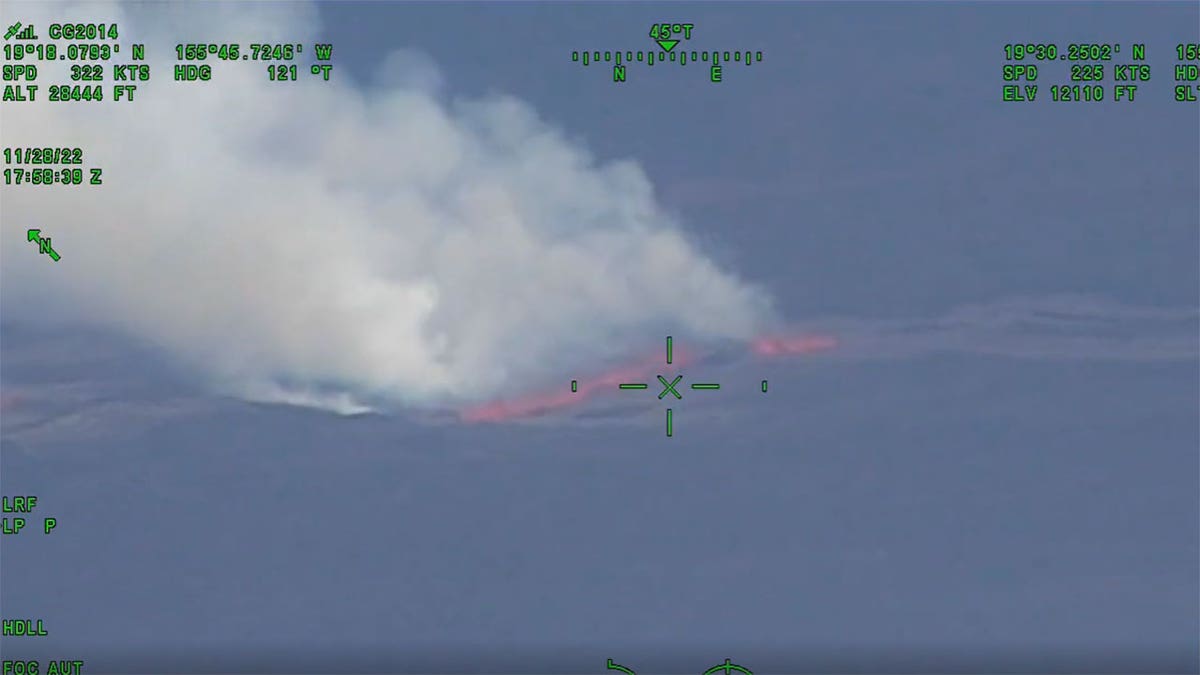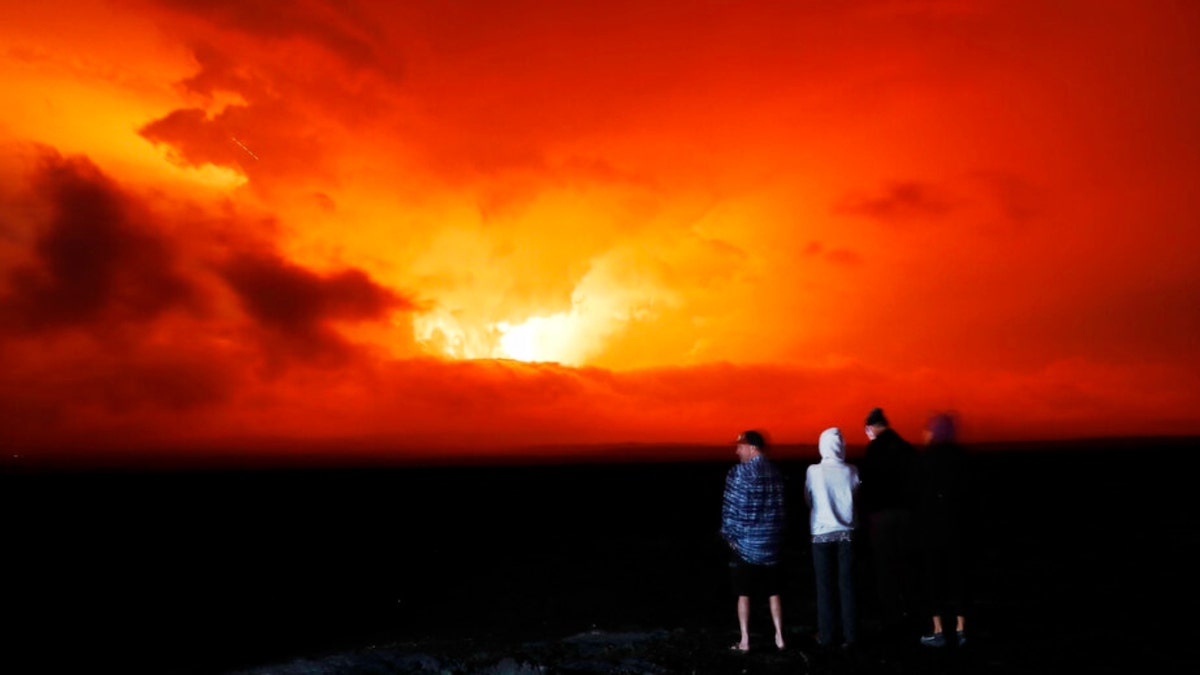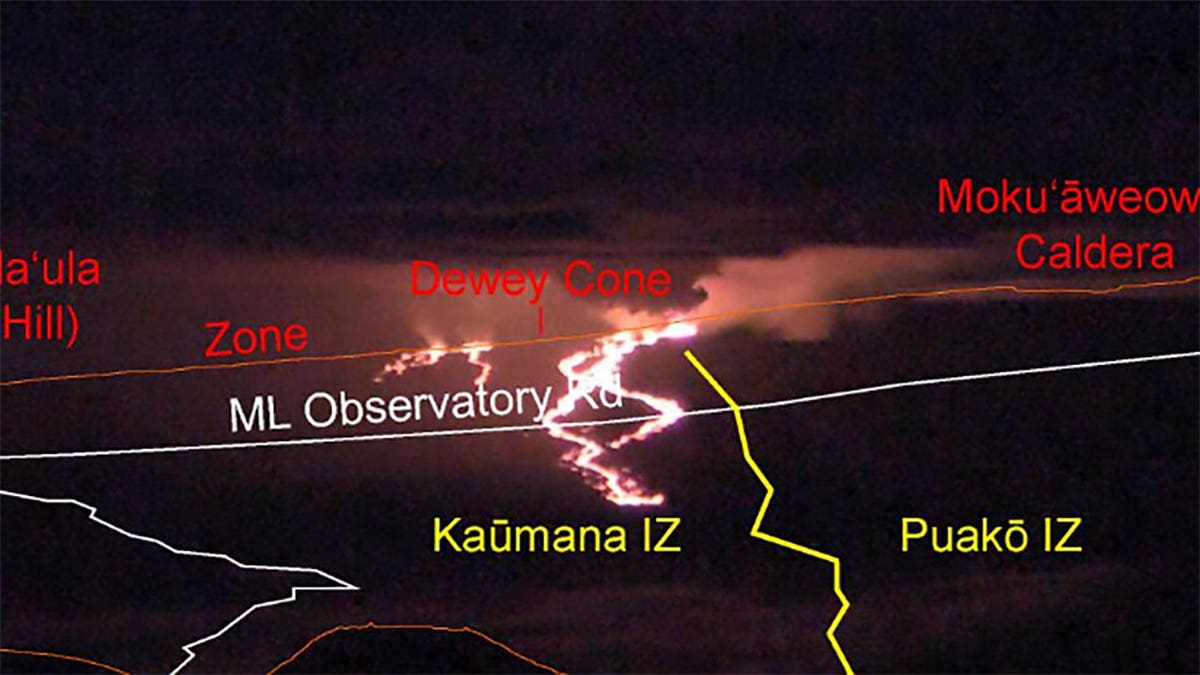US Coast Guard aerial video shows Mauna Loa eruption lava flow on Hawaii's Big Island
U.S. Coast Guard Hawaii Pacific shared new aerial footage of the lava flow from Mauna Loa's eruption on Hawaii's Big Island.
The U.S. Coast Guard shared new aerial footage of the lava flow from the summit of Mauna Loa, the world’s largest active volcano on Hawaii’s Big Island since it first started to erupt Sunday night.
In sharing the video of the progression of lava flow, captured by the U.S. Coast Guard Hawaii Pacific C-130 military aircraft, the agency noted how the volcano is erupting for the first time since 1984. The eruption Sunday night marked the end of Mauna Loa’s longest quiet period in recorded history.
The eruption began in Moku’āweoweo, the summit caldera of Mauna Loa, on Sunday at approximately 11:30 p.m. HST, according to the Hawaii Volcano Observatory. Though lava is flowing down one side of the volcano, there is no indication of a threat to nearby communities at this time, officials said.
At a press conference, Hawaii Gov. David Ige and Hawaii Island Mayor Mitch Roth noted that while some residents chose to voluntarily leave their homes, there have yet to be any evacuation orders and all schools will remain open, Hawaii News Now reported.
The officials also said visitors planning trips to the Big Island do not have to cancel travel plans.
According to the outlet, the Mauna Loa eruption, the first in nearly forty years, is expected to bring a winter tourism boost to nearby businesses.

A still from a live webcam monitoring Mauna Loa's summit and northeast rift zone from Mauna Kea. (USGS/ Hawaiian Volcano Observatory )
Portions of the Big Island are under an ashfall advisory issued by the National Weather Service in Honolulu.
As a precaution, shelters have been opened at Kekuaokalani Gym, Kailua Park in Kona and Robert Herkes Gym in Pahala, according to the U.S. Coast Guard.

Aerial footage taken from the U.S. Coast Guard C-130 showing the progression of the lava flow from Mauna Loa, the world's largest active volcano. (USCG Hawaii Pacific )
"U.S. Coast Guard Joint Rescue Coordination Center Honolulu received a call from Hawaii County Civil Defense Agency with a request for support from an Air Station Barbers Point C-130 to conduct an aerial observation flight of the eruption with partners from the U.S. Geological Survey and official’s from the State and County," Lt. Eric Juback, D14 command duty officer, said in a statement. "The Coast Guard values these inter-agency relationships and stands ready to support emergency operations across the Hawaiian Islands if capable."

People watch Mauna Loa eruption, Monday, Nov. 28, 2022, near Hilo, Hawaii. (AP Photo/Marco Garcia)
Upon receiving the request, a C-130 Hercules aircrew from Air Station Barbers Point conducted a fly-over with Mayor Mitch Roth, Hawaii Civil Defense Agency, U.S. Geological Survey, and other state and county officials to assess the situation. Video footage was taken from the C-130 at that time.
The Hawaiian Volcano Observatory is also airing live webcam footage of Mauna Loa's summit and northeast rift zone from Mauna Kea.

An annotated view of a webcam on Mauna Kea looking toward Mauna Loa shows the flow from Fissure 3 that has moved north to cross the NOAA Mauna Loa Observatory road overnight. (USGS )
On Tuesday morning, the U.S. Geological Service (USGS) tweeted an annotated view of the webcam capturing Mauna Loa, demonstrating how the lava flow from Fissure 3 has moved north to cross the National Oceanic and Atmospheric Administration Mauna Loa Observatory Road overnight. Two new flows are moving north down rift of Fissure 3.
Meanwhile, a magnitude-4.0 earthquake occurred 6 miles east of Pahala, Island of Hawaiʻi, at a depth of 20 miles below sea level at 3:27 a.m. local time Tuesday. The USGS said the earthquake is not related to the eruption of Mauna Loa and had no apparent impact on the ongoing eruptions at Mauna Loa and Kīlauea.











































